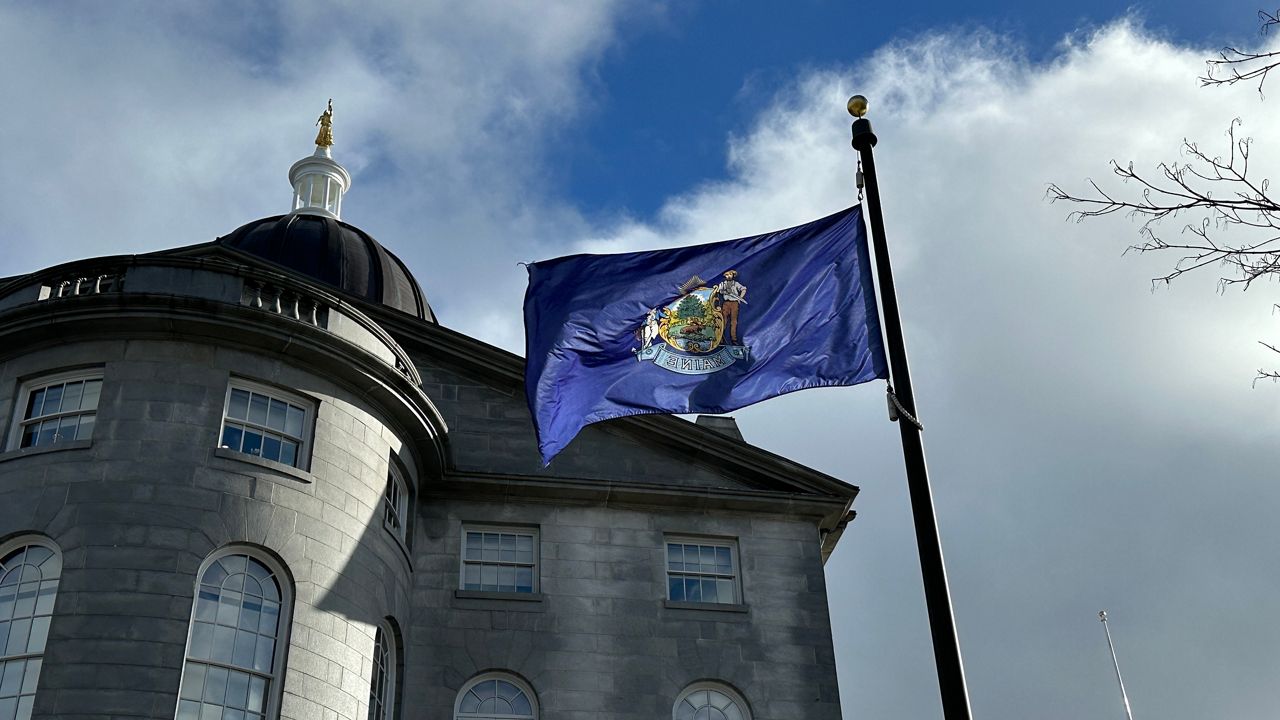A committee split along party lines Wednesday on a bill that seeks to enhance mental health services and expand background checks following the Lewiston mass shootings.
The Judiciary Committee voted 8-6 to advance LD 2224, which also amends the state’s “yellow flag” law and increases the penalty for selling a firearm to a person who is prohibited from having one.
All eight Democrats on the committee voted for the bill, with five Republicans voting against. Passamaquoddy Tribal Rep. Aaron Dana also opposed the measure.
The bill, sponsored by Sen. Peggy Rotundo (D-Lewiston), now heads to the Senate for consideration.
Gov. Janet Mills sent the bill to lawmakers following the Oct. 25 mass shootings in Lewiston that claimed the lives of 18 and injured 13 at a bowling alley and a bar.
It’s one of the gun-related bills now pending before lawmakers, including a proposed 72-hour waiting period and a measure to ban “bump stocks” that enable guns to fire more bullets more quickly.
The Judiciary Committee voted 8-6 along party lines to advance the bump stock ban, a bill that also requires law enforcement to destroy forfeited firearms.
The 72-hour waiting period — which requires a gun buyer to wait three days between purchasing a firearm and picking it up — passed 7-6, with all Democrats except Rep. Adam Lee (D-Auburn) voting in support. Lee said he wants to include language to exempt victims of domestic violence from the waiting period.
“I don’t want to be the person who precluded that individual who is a survivor of domestic violence from having the opportunity to defend themselves if they choose to do so,” Lee said.
During committee discussion on the governor’s bill, Republicans said they have concerns about expanding background checks. The bill requires a background check if someone advertises a weapon for sale and finds a buyer they do not know.
“This is a law that would affect law abiding citizens,” said Rep. Jennifer Poirier (R-Skowhegan). “Criminals do not care about the law. They will find a way by whatever means, whether it’s stealing or what have you, if they want to commit a crime. Extending these background checks is not going to solve that problem.”
The bill also seeks to change the state’s “yellow flag” law so police can ask a judge for a warrant to take someone into custody if they have evidence that the person suffers from mental illness, has access to weapons and “presents a likelihood of serious harm.”
As it is now, the law requires a police officer to make contact with someone before they can get a warrant from a judge to remove weapons.
In addition, the bill increases the penalty for “intentionally, knowingly or recklessly” selling a firearm to a person who is prohibited from having one and requires the state to create a network of crisis receiving centers to provide mental health and substance use disorder services.
Democrats on the committee did not comment on the merits of the bill before voting in favor of it. But in her State of the State address, Mills pitched it as compromise legislation that recognizes the dangers of gun violence while protecting the state’s hunting traditions.
“I recognize that on the one hand, this legislation may be too little to those who believe more is needed, while, on the other hand, it may be too much to those who believe the opposite,” Mills said. “But violence is not a simple problem, nor is the remedy a single, simple measure. And these proposals represent progress, and they do not trample on anybody’s rights.”
On Wednesday, Sen. Eric Brakey (R-Auburn) raised a number of objections, saying that none of the bills Democrats put forward would have prevented Lewiston shooter Robert Card, 40, of Bowdoin, from carrying out the state’s deadliest mass shooting.
He said Card, an Army reservist, was not prohibited from possessing firearms and he didn’t buy his guns within 72-hours of committing the crime.
Also, an interim report released earlier this month about the shootings found that police failed to implement the existing “yellow flag” law even though they had ample evidence to do so.
Brakey said he does support expanding mental health services, but that there will be other legislation coming forward to achieve that goal.
“None of the proposals before us including the governor’s proposal, would have directly affected, from what I can tell, any of the circumstances affecting the Lewiston tragedy which is certainly the event that has prompted these bills to come forward at this point in time,” Brakey said.



